Filter by

Data-Driven Fault Detection and Reasoning for Industrial Monitoring
This open access book assesses the potential of data-driven methods in industrial process monitoring engineering. The process modeling, fault detection, classification, isolation, and reasoning are studied in detail. These methods can be used to improve the safety and reliability of industrial processes. Fault diagnosis, including fault detection and reasoning, has attracted engineers and scien…
- Edition
- -
- ISBN/ISSN
- 9789811680441
- Collation
- -
- Series Title
- -
- Call Number
- -

The rationality quotient :toward a test of rational thinking
How to assess critical aspects of cognitive functioning that are not measured by IQ tests: rational thinking skills.OCLC-licensed vendor bibliographic record.
- Edition
- -
- ISBN/ISSN
- 9780262336819
- Collation
- 1 online resource (xvii, 459 pages) :illustrations
- Series Title
- -
- Call Number
- -
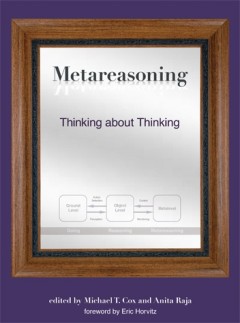
Metareasoning: Thinking about Thinking
This text offers a simple model of reasoning about reason as a framework for its discussions. Following this framework, the contributors consider meta-level control of computational activities, introspective monitoring, distributed meta-reasoning, and, putting all these aspects of meta- reasoning together.OCLC-licensed vendor bibliographic record.
- Edition
- -
- ISBN/ISSN
- 9780262295284
- Collation
- 1 online resource (vi, 340 pages) :illustrations
- Series Title
- -
- Call Number
- -
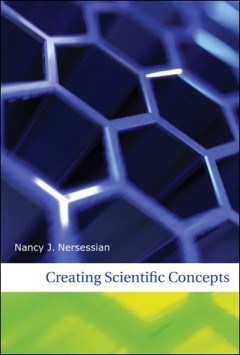
Creating Scientific Concepts
An account that analyzes the dynamic reasoning processes implicated in a fundamental problem of creativity in science: how does genuine novelty emerge from existing representations?How do novel scientific concepts arise? In Creating Scientific Concepts, Nancy Nersessian seeks to answer this central but virtually unasked question in the problem of conceptual change. She argues that the popular i…
- Edition
- -
- ISBN/ISSN
- 9780262280549
- Collation
- 1 online resource (xiv, 251 pages) :illustrations
- Series Title
- -
- Call Number
- -
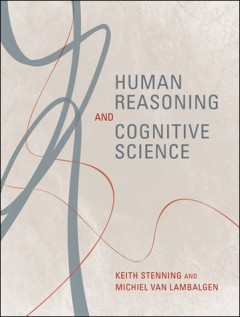
Human Reasoning and Cognitive Science
"A Bradford book.""In Human Reasoning and Cognitive Science, Keith Stenning and Michiel van Lambalgen - a cognitive scientist and a logician - argue for the indispensability of modern mathematical logic to the study of human reasoning. Logic and cognition were once closely connected, they write, but were "divorced" in the past century; the psychology of deduction went from being central to the …
- Edition
- -
- ISBN/ISSN
- 9780262284295
- Collation
- 1 online resource (xii, 407 pages) :illustrations
- Series Title
- -
- Call Number
- -
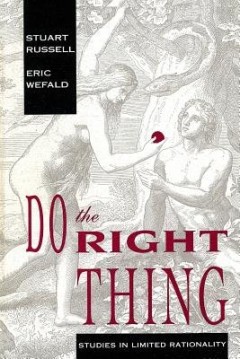
Do the Right Thing: Studies in Limited Rationality
The authors argue that a new theoretical foundation for artificial intelligence can be constructed in which rationality is a property of "programs" within a finite architecture, and their behavior over time in the task environment, rather than a property of individual decisions.Like Mooki, the hero of Spike Lee's film "Do the Right Thing," artificially intelligent systems have a hard time knowi…
- Edition
- -
- ISBN/ISSN
- 9780262282772
- Collation
- 1 online resource (xx, 200 pages) :illustrations.
- Series Title
- -
- Call Number
- -
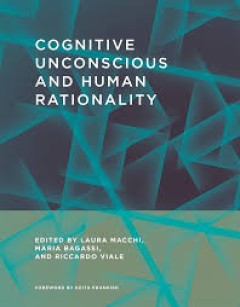
Cognitive Unconscious and Human Rationality
"This volume contributes to a current debate within the psychology of thought that has wide implications for our ideas about creativity, decision making, and economic behavior. The essays focus on the role of implicit, unconscious thinking in creativity and problem solving, the interaction of intuition and analytic thinking, and the relationship between communicative heuristics and thought. The…
- Edition
- -
- ISBN/ISSN
- 9780262335119
- Collation
- 1 online resource (xvi, 385 pages) :illustrations
- Series Title
- -
- Call Number
- -
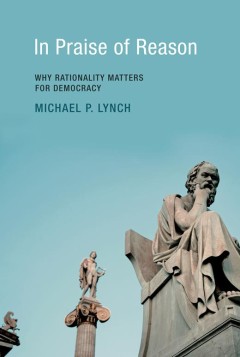
In praise of reason / In Praise of Reason:
- Edition
- -
- ISBN/ISSN
- -
- Collation
- 1 online resource (xii, 166 pages)
- Series Title
- -
- Call Number
- -
- Edition
- -
- ISBN/ISSN
- -
- Collation
- 1 online resource (xii, 166 pages)
- Series Title
- -
- Call Number
- -
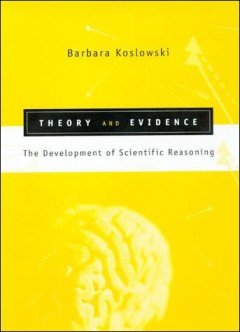
Theory and Evidence: The Development of Scientific Reasoning
A Bradford book."In Theory and Evidence Barbara Koslowski, long acknowledged for her empirical work in the field of cognitive-developmental research, brings into sharp focus the ways in which the standard literature both distorts and under-estimates the reasoning abilities of ordinary people. She provides the basis of a new research program for a more complete characterization of scientific rea…
- Edition
- -
- ISBN/ISSN
- 9780262277471
- Collation
- 1 online resource (xii, 298 pages) :illustrations.
- Series Title
- -
- Call Number
- -
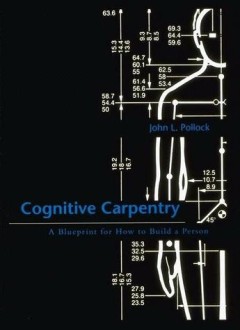
Cognitive Carpentry: A Blueprint for How to Build a Person
A sequel to Pollock's How to Build a Person, this volume builds upon that theoretical groundwork for the implementation of rationality through artificial intelligence. Pollock argues that progress in AI has stalled because of its creators' reliance upon unformulated intuitions about rationality. Instead, he bases the OSCAR architecture upon an explicit philosophical theory of rationality, encom…
- Edition
- -
- ISBN/ISSN
- 9780262281751
- Collation
- 1 online resource (xiii, 377 pages) :illustrations
- Series Title
- -
- Call Number
- -
 Computer Science, Information & General Works
Computer Science, Information & General Works  Philosophy & Psychology
Philosophy & Psychology  Religion
Religion  Social Sciences
Social Sciences  Language
Language  Pure Science
Pure Science  Applied Sciences
Applied Sciences  Art & Recreation
Art & Recreation  Literature
Literature  History & Geography
History & Geography